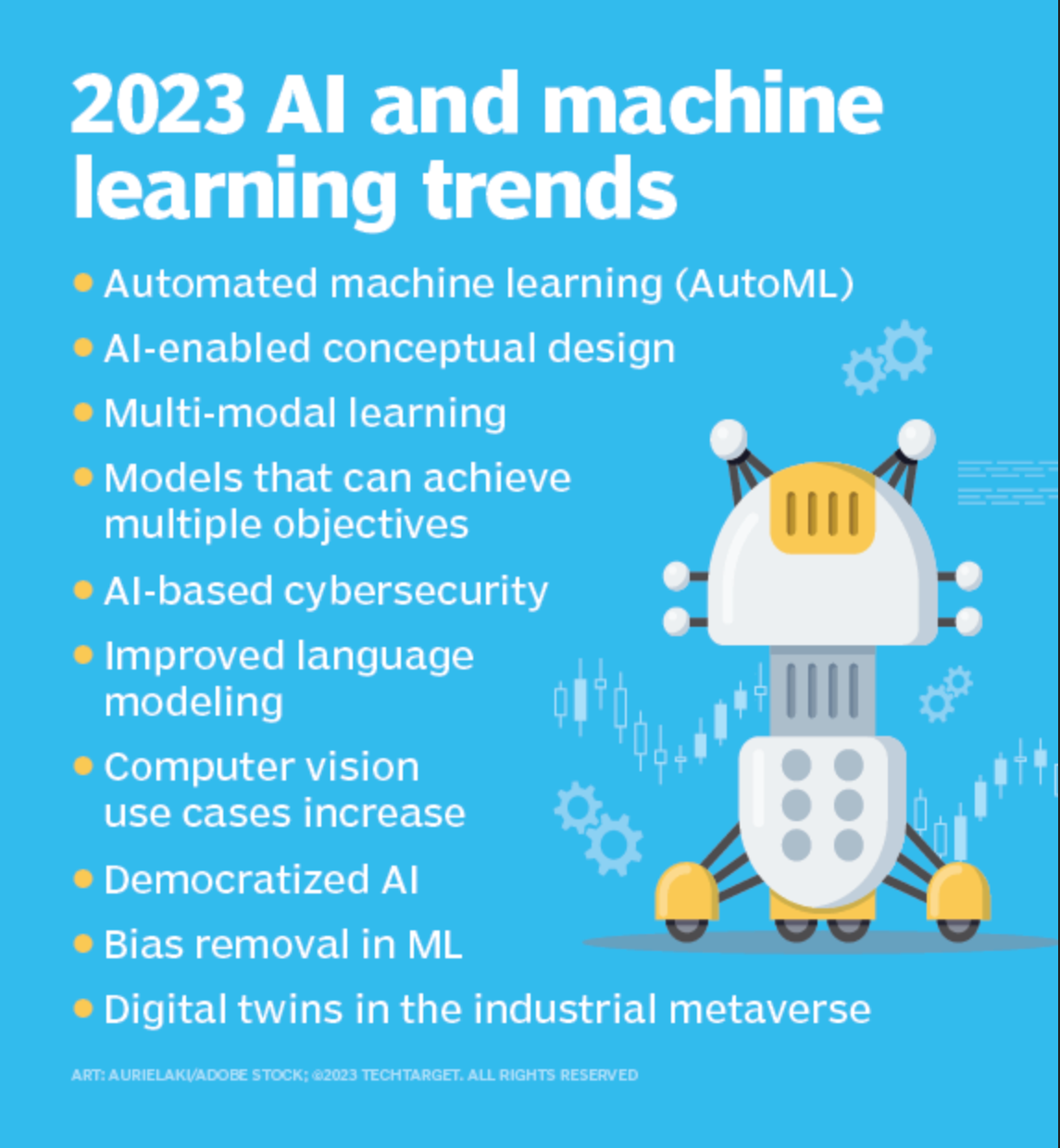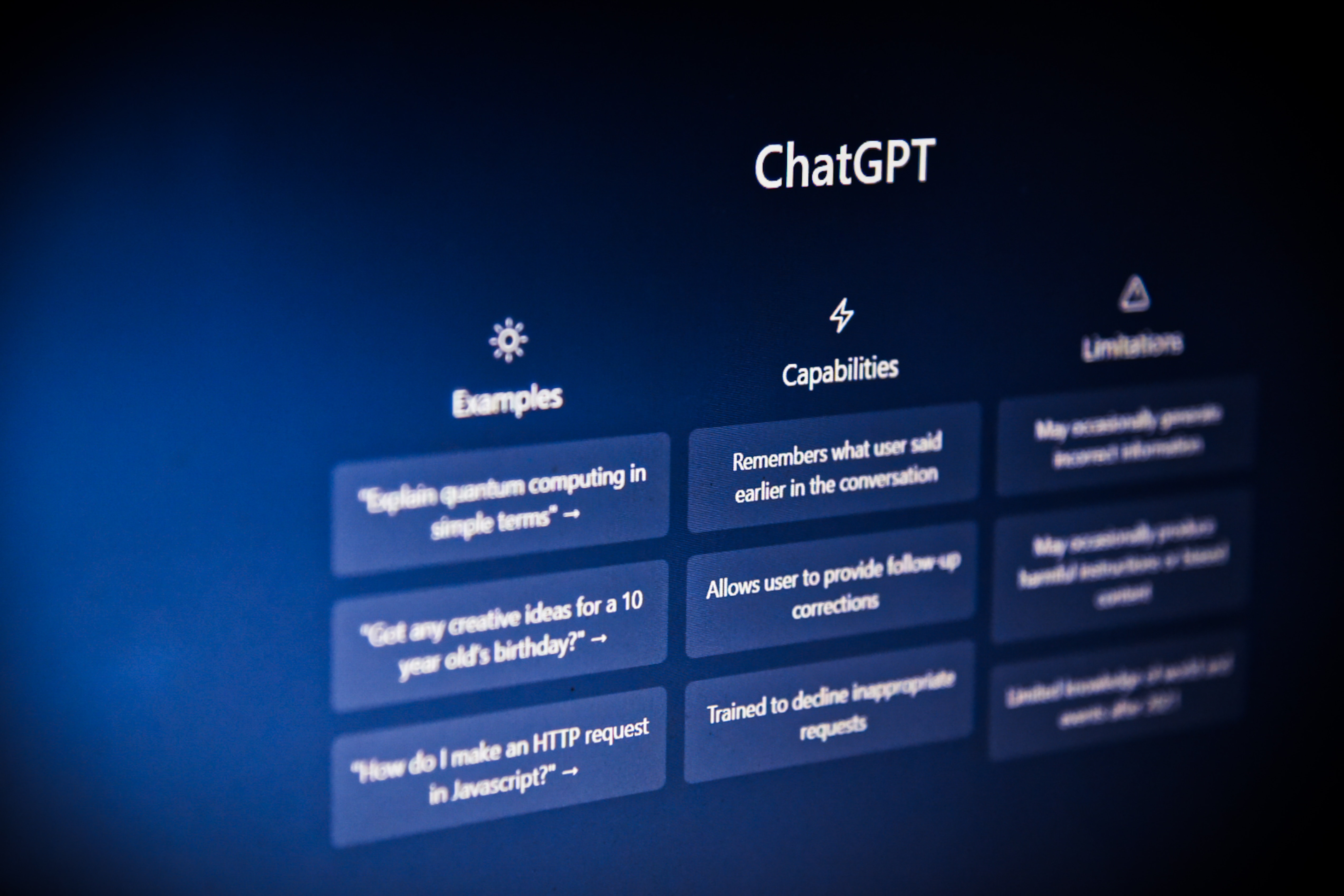Published on: November 15, 2023 Updated on: February 14, 2024
High-Income AI Skills to Learn in 2024
Author: Inge von Aulock

Welcome to the exciting world of AI in 2024! If you’re intrigued by the rapid growth of artificial intelligence and its sprawling effects on the job market, you’re in the right place. Today’s job landscape is a thrilling expanse where AI skills are not just nice to have; they are must-haves. So, let’s dive in and explore the skills that can not only enhance your resume but potentially fatten your wallet.

Understanding the AI landscape
Remember when AI was just a buzzword? Those days are long gone. AI has firmly rooted itself in everything from your smartphone’s camera to the customer service chatbot you interacted with last night. But before we start unpacking all the high-income skills you can acquire, let’s take a moment to understand the domains of AI that are ruling the roost in 2023.
The shift in AI trends
Unlike the previous years, where the spotlight was on big data and analytics, 2023 is shining its light on predictive analytics, machine ethics, and AI governance. These emerging niches within AI domains are transforming industries in a way that screams ‘the future is now’.
Let’s dive into the world of predictive analytics through a conversation I had with Dr. Sia, an AI researcher who specializes in predictive models for healthcare. “It’s all about anticipation,” she explains. “Predictive analytics helps us foresee health events before they occur, which can save lives and resources.” Her team uses AI to predict patient admissions, potential outbreaks, and even individual health risks.

AI’s ethical implications have also come to the forefront, leading to the rise of machine ethics and AI governance. Dr. Sia emphasized the importance of this shift: “We need to ensure that the AI systems we create are making ethical decisions, especially when they’re making predictions that can affect human lives.”
“Predictive analytics helps us foresee health events before they occur, which can save lives and resources.”
AI’s role across sectors
AI is not just a tech industry gig. Healthcare, finance, manufacturing, and even creative industries are embracing AI for its predictive powers and decision-making prowess. This cross-industry adoption is creating a goldmine of opportunities for AI-savvy professionals.
AI’s tentacles reach far beyond the obvious tech sectors. To understand this better, I spoke with Jamal, a fintech startup founder, about AI’s impact in finance. “AI is a game-changer for us,” Jamal says, “from fraud detection to personalized banking services, it’s reshaping how we interact with money.”

In manufacturing, AI’s role is equally transformative. Sarah, an operations manager at a manufacturing plant, shared how AI facilitates predictive maintenance, saying, “We can predict machine failure before it happens, which has drastically reduced downtime and costs.”
And in the creative industries, AI’s presence is no less revolutionary. A digital artist I interviewed, Leo, utilizes AI algorithms to create unique art pieces. “AI helps me push the boundaries of creativity,” he says. “It’s an unprecedented collaboration between human and machine imagination.”
Foundational high-income skills to learn
To claim your stake in the high-income bracket of the AI field, start with the essentials. Here’s what you need to nail down.
Machine learning algorithms
Understand the difference between supervised and unsupervised learning, but don’t stop there. Get cozy with reinforcement learning—2023’s darling of the AI world, known for its ability to make decisions and learn through trial and error.
Dr. Keira, a machine learning engineer, stresses the importance of mastering algorithms. “Knowing your way around algorithms – like neural networks, decision trees, and clustering – is a must for any aspiring AI professional,” she states.
Dr. Keira recommends starting with hands-on projects to build a robust portfolio. Online platforms like GitHub and personal blogs are excellent places to showcase your work.
Neural networks and deep learning
It’s not enough to know what a neural network is. Get hands-on and build one. Deep learning is the engine of today’s AI, powering everything from voice recognition to autonomous vehicles.

NLP is about teaching machines to understand us. I spoke with Dr. Lin, an NLP specialist, who says, “The subtleties of human language, with all its nuances and complexities, present a fascinating challenge.” She suggests contributing to open-source NLP projects as a way to hone your skills.
AI ethics and governance (deep dive)
AI governance is a newer, yet rapidly growing field. I talked with Adrian, a policy advisor for AI ethics. “It’s not science fiction anymore. We’re drafting policies today that will govern tomorrow’s AI,” he remarks.
He advises those interested to stay informed on the latest regulations and participate in forums discussing the ethical implications of AI.
Data manipulation and analysis
Data is the lifeblood of AI. Sharpen those skills in wrangling, cleaning, and interpreting data. Become one with the tools that allow you to manipulate large datasets because, without data, AI is just A. A lot of very in-demand skills focus on understanding data.
Programming languages
Python still wears the crown in 2023. But don’t overlook R for statistical analyses or Julia for high-performance numerical computing. Being multilingual (in the programming sense) can set you apart. These kinds of web development skills are difficult to learn and take a lot of dedication, time, and patience. But it’s well worth it for your future.
Advanced high-income AI skills
Once you’ve got the fundamentals down, it’s time to graduate to the next level.
Natural language processing (NLP)
From sentiment analysis to chatbots, NLP is the bridge between human communication and machine understanding. It’s a high-income skill set in high demand and commands an impressive salary to match.

NLP is about teaching machines to understand us. I spoke with Dr. Lin, an NLP specialist, who says, “The subtleties of human language, with all its nuances and complexities, present a fascinating challenge.” She suggests contributing to open-source NLP projects as a way to hone your skills.
Computer Vision
Image recognition, video analysis, and all things visual—this is the realm of computer vision. As machines get better at ‘seeing’, the applications and opportunities continue to expand.
AI Model Deployment and Scaling
Building a model is one thing; deploying it in a scalable, robust manner is another. Skills in cloud computing and platforms that support AI deployment are increasingly valuable.
AI Ethics and Policy
As AI becomes more prevalent, so does the concern for its ethical implications. Understanding the social impact and legal considerations of AI will make you a well-rounded and sought-after professional.

AI governance is a newer, yet rapidly growing field. I talked with Adrian, a policy advisor for AI ethics. “It’s not science fiction anymore. We’re drafting policies today that will govern tomorrow’s AI,”
He advises those interested to stay informed on the latest regulations and participate in forums discussing the ethical implications of AI.
Emerging AI technologies
Now, for the really cutting-edge stuff—technologies that are defining the forefront of AI in 2023.
Generative adversarial networks (GANs)
GANs are exciting because they’re about creativity—AI creating content that is increasingly difficult to distinguish from what humans can produce. They’re not just about deepfakes; they’re also revolutionizing design, modeling, and entertainment.
Reinforcement learning applications
We’ve touched on this with machine learning, but the applications deserve their spotlight. Reinforcement learning is behind some of the most impressive AI feats, like beating humans at complex games. And it has serious real-world applications in robotics and automation.
Quantum machine learning and data science
It might sound like sci-fi, but it’s real, and it’s here. Quantum computing is setting the stage for solving complex problems at speeds previously unimaginable. The skillset might be niche, but it’s incredibly lucrative.

Quantum computing is set to revolutionize AI. Expert Dr. Zhao tells me, “Quantum algorithms can process complex data at unprecedented speeds.” While this field is still budding, she suggests following the latest quantum computing research to stay ahead in the data science world.
Edge AI
Processing data on the device itself—this is what Edge AI is all about. It’s making technology faster and more reliable, and it’s opening up a world of possibilities for real-time AI applications.
Industry-specific AI skills
You’ve got the AI chops; now it’s time to tailor them to the industry that excites you most. Whether that’s digital marketing, software development, or even graphic design. There are so many examples for every industry, but we’re going to take a look at the top three.
1. AI in healthcare
With skills in medical image analysis or drug discovery using AI, you’re not just earning a high income; you’re changing lives and the face of healthcare.
2. AI in finance
From algorithmic trading to fraud detection, AI is revolutionizing finance. These skills can make you invaluable to financial institutions swimming in data and hungry for insights.
3. AI in manufacturing
Predictive maintenance and supply chain optimization are just the tip of the iceberg. Manufacturing is all about efficiency, and with AI, you can be the one to boost it.
Soft skills and cross-disciplinary knowledge
AI isn’t all algorithms and coding. The human element is crucial.
Project management for AI projects
Project management skills will keep you in good stead for any career. But knowing how to manage an AI project from conception to deployment is a skill set on its own. It requires a blend of technical know-how and managerial prowess, not forgetting basic interpersonal skills. Once you learn project management skills related to AI you’ll be qualified for many high-paying jobs and interesting positions.

Understanding business processes
To provide solutions that make sense, you need to understand the problems. Knowledge of business processes is key to making AI work in the real world. Luckily, this kind of understanding comes from experience. Your sweet shop job when you were a teen was valuable! Sales skills, cashing up, and stock orders are the building blocks of understanding business processes.

Ethical implications and social skills
AI doesn’t operate in a vacuum. It’s part of society, and understanding its ethical implications is crucial. Combine that with strong social skills, and you’re gold.

Communication skills for technical information
Can you explain complex AI concepts to a five-year-old? Or at least to company stakeholders? That’s the level of communication skills needed in the AI industry. Even if you’ve got a first-class computer science degree and are an experienced data scientist, communication is still an essential skill to achieve a high-income career. And we’re not just talking coding languages.

Education and certification
Alright, so where do you learn all this? Let’s look at the paths available.
Formal education vs. online courses and bootcamps
Degrees are great, but they’re not the only way. Online courses and bootcamps can give you specific skills quickly and are often more affordable. Because AI is a rapidly evolving field, traditional education often can’t keep up, meaning alternative education can be your ticket to learning high-income skills.
Certifications and their industry value
Certifications can be useful in proving your skills. They hold weight and can be the differentiator in a crowded market. In a sea of job applications with the same claims, a certificate to prove you have been tested on a skill and passed will help you stand out.
Building a portfolio and gaining practical experience
Nothing speaks louder than a robust portfolio. Get your hands dirty with projects that showcase your skills. Showcasing your talent across various industries will prove you are adaptable and have comprehensive knowledge and skills. Take any job opportunities that come your way in the early days to get your portfolio popping.
Networking in the AI community
Join AI meetups, forums, and conferences. The AI community is tight-knit and welcoming. Plus, networking could lead to your next big opportunity. These types of events are often the perfect place for upskilling. Tried your hand at AI content creation? Great, why not delve into video editing to improve your practice? Plenty of AI specialists will give practical talks and advice telling you exactly how to branch out.
The Future of AI Jobs
The horizon for AI jobs is bright and full of potential. It’s not all statistical analysis, software development, and machine learning. Artificial intelligence is playing a part in almost every industry. So even if you’ve never even thought about data analysis, AI could play an important role in your career.
Predictions for the AI job market

As AI becomes more ubiquitous, the demand for skilled professionals will only grow. The future looks promising for those with the right CVs. So it’s more important than ever now to learn high-income skills that allow you to participate in artificial intelligence roles.
Continuous learning and adaptation
AI is a field of constant change. Staying on top of the latest advancements isn’t just advisable; it’s essential. Make a commitment to lifelong learning, and you’ll find that the artificial intelligence field can be incredibly rewarding.
In AI, the learning never stops. Algorithms evolve, new programming languages emerge, and the way we use data transforms. Professionals in AI not only accept this; they thrive on it. To stay competitive, they adapt by continually updating their skills and knowledge.
Take the example of Jane, an AI specialist I met at a conference last year. She spends her weekends diving into the latest courses on quantum computing and NLP. Her secret to success? “I’m always a student,” she says with a knowing smile. “The moment you think you’ve learned it all, you’re already irrelevant.”
“The moment you think you’ve learned it all, you’re already irrelevant.”
The importance of innovation and staying ahead of the curve
In the fast-paced world of AI, innovation is your key to staying relevant. Embrace the challenge of always looking for new ways to apply AI, and you’ll find that the opportunities will follow.
Innovation is the beating heart of artificial intelligence. It’s not just about what you know, but how you apply it. Think of it as a sandbox. The tools and techniques are like your shovels and pails, but it’s your imagination that will build the castle.

Consider the story of Aarav, who created an AI-powered app that helps farmers in developing countries diagnose plant diseases. His innovation stemmed from combining his AI skills with a deep understanding of agricultural challenges. It’s not just the technology; it’s about solving real-world problems with a touch of creativity.
Conclusion
The time is now. The first step? Choose a skill that excites you. If the idea of machines learning from data fascinates you, delve into it. If you’re thrilled by the thought of computers understanding human language, NLP might be your calling.
Next, it’s about finding the right learning platform. Websites like Coursera, edX, and Udacity offer courses from top-tier universities and companies. If you’re more of a hands-on learner, platforms like Kaggle provide datasets you can play with to practice your skills.
And don’t forget the human element. Networking might seem like an old-school approach, but it’s gold in the AI world. Platforms like LinkedIn, Meetup.com, and even Twitter can connect you with peers, mentors, and thought leaders.
But most importantly, get your hands dirty with real projects. Whether it’s a personal project or contributing to an open-source initiative, the experience is invaluable. It’s the stories of your struggles and triumphs while working on these projects that will resonate with future employers.
Remember Jane and Aarav? It was their projects that caught the eye of employers and catapulted their careers. Jane’s weekend projects on quantum machine learning got her a lead role in an emerging tech firm. Aarav’s agricultural AI app won him grants and support from NGOs around the world.
The key takeaway? Start where you are, use what you have, and do what you can. The AI landscape is fertile ground, and with the right skills, you can harvest a career that’s both lucrative and fulfilling.

What’s next?
So, where do you go from here? Begin by choosing one or two skills that resonate with you and align with your career goals. Seek out resources—be it online courses, university classes, or coding bootcamps—and start building your knowledge base.
Remember, the journey into AI doesn’t have to be a solo adventure. Join online communities, find mentors, attend workshops, and don’t be afraid to reach out to experts in the field. The AI community is often very supportive and can provide invaluable guidance and insights.
And finally, practice, practice, practice. Work on projects, contribute to open-source AI initiatives, or even create your own applications. Real-world experience is the ultimate polish for your high-income AI skills.
Your journey into the high-income world of AI starts with a single step. Are you ready to take it? The future is bright and brimming with potential; grab it by the algorithms and start your ascent today!
Inge von Aulock
I'm the Founder & CEO of Top Apps, the #1 App directory available online. In my spare time, I write about Technology, Artificial Intelligence, and review apps and tools I've tried, right here on the Top Apps blog.
Recent Articles
Introduction AI burnout reduction isn’t a futuristic concept anymore. It’s a reality. In 2024, we’re not just talking about AI; we’re living...
Read More
Explore the advantages of combining AI and VR with digital CBT platforms, enhancing therapy effectiveness and patient engagement through data.
Read More
Explore the latest advances in AI and CBT integration. Discover the new ways AI can enhance therapy effectiveness and accessibility in mental health...
Read More